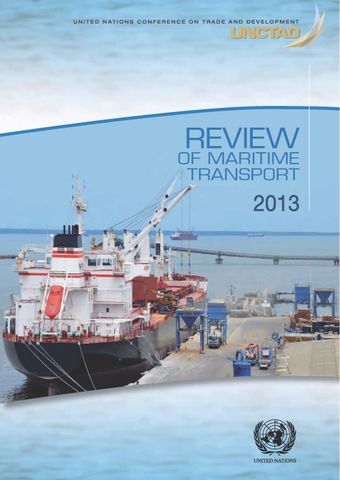Securing reliable access to maritime transport for landlocked countries

- مؤلف: United Nations Conference on Trade and Development
- العنوان الرئيسي: Review of Maritime Transport 2013 , pp 139-150
- تاريخ النشر: فبراير ٢٠١٤
- DOI: https://doi.org/10.18356/a0013c34-en
- Language: الإنجليزية الإسبانية, الروسية, الصينية, الفرنسية
The passage of trade of landlocked countries through coastal territories to access shipping services is generally governed by a standard principle: goods in transit and their carriage are granted crossing free of fiscal duties and by the most convenient routes. In practice, however, the implementation of this basic norm suffers from numerous operational difficulties, resulting in high transport costs and long travel times, which undermine trade competitiveness and ultimately the economic development of landlocked countries. Over the past decade, under the Almaty Programme of Action launched in 2003, new analytical tools and extensive field research have brought fresh knowledge about the mechanisms explaining detected inefficiencies. Among other things, it has revealed that rent-seeking stakeholders may play against improvements, making transit operations unnecessarily complex and unpredictable, to the detriment of governmental and traders’ efforts. Thus, by exposing conflicting forces at play along transit chains, the analysis shows that the trade of landlocked countries primarily suffers from unreliability resulting from a lack of cooperation among stakeholders, often explaining high transport costs and long transit times.
© United Nations
ISBN (PDF):
9789210541954
Book DOI:
https://doi.org/10.18356/d6798fb6-en
الموضوعات ذات الصلة:
Transportation and Public Safety
Sustainable Development Goals:
-
From This Site
/content/books/9789210541954c011dcterms_title,dcterms_subject,pub_keyword-contentType:Journal -contentType:Contributor -contentType:Concept -contentType:Institution105
/content/books/9789210541954c011
dcterms_title,dcterms_subject,pub_keyword
-contentType:Journal -contentType:Contributor -contentType:Concept -contentType:Institution
10
5

